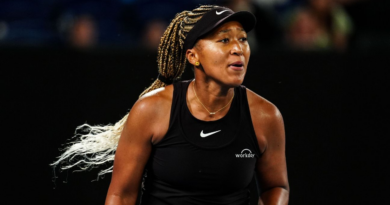Ulbrich: Rodgers to remain Jets' starting QB
For his 41st birthday, New York Jets quarterback Aaron Rodgers was given a reprieve.
Despite a nightmarish season, Rodgers will remain the starter for what could be the final five games of his illustrious career, interim coach Jeff Ulbrich announced Monday morning.
Ulbrich, who created doubt with a lukewarm endorsement after Sunday’s 26-21 loss to the Seattle Seahawks, said Rodgers still can play at a “high level” and gives the spiraling Jets (3-9) the best chance to win.
Rodgers’ Hall-of-Fame pedigree also factored into the decision.
“Obviously, that’s part of every conversation regarding Aaron,” Ulbrich said. “Yeah, he’s done amazing things. He’s done legendary things, Hall-of-Fame things in this league, and I think that’s always part of the conversation. Always.”
Ulbrich made it sound like he’s prepared to ride with Rodgers for the rest of the season, barring injury. He dismissed the notion that it will be a week-to-week decision.
“No, he’s our quarterback,” said Ulbrich, whose backup is veteran Tyrod Taylor.
It might not be as simple as that, though. After all, owner Woody Johnson suggested benching Rodgers when the team was 2-2, sources said recently. Johnson backed off at the time, but he could always change his mind. Ulbrich declined to say if Johnson had input into the decision to stick with Rodgers, adding that he and Johnson always have “good, healthy conversations.”
Ownership already is looking ahead to 2025, as it was announced last week that it hired an outside firm to assist with the general manager and head coaching searches.
Rodgers, who turned 41 on Monday, will make the 14th start of his Jets career on Sunday against the Miami Dolphins (5-7). He’s coming off one of his worst games of the season — 21-for-39, 185 yards, two touchdowns and one interception.
The stats don’t tell the true story, though. In the second quarter, he doomed the Jets with an awful two-play sequence. He overthrew a wide-open Garrett Wilson for what would’ve been a nine-yard touchdown and followed up with an interception that resulted in a historic pick-6. Leonard Williams‘ 92-yard return was the longest pick-6 in history for a defensive lineman.
Rodgers, who said last week he’s undecided on whether to play in 2025, hasn’t resembled anything close to the quarterback who won four MVPs with the Green Bay Packers. Early-season leg injuries (hamstring and knee) have been a factor, according to Ulbrich.
“He’s battled through a lot of things, regardless of your age,” Ulbrich said. “What he’s had is something that some guys in this league may not play with, so he’s a tough guy and he feels a high level of accountability to his teammates. It’s why he’s out there every week for us and we believe, as he gets healthier and his mobility starts to improve, I think you’re going to see a better and better version of him.”
Rodgers has 19 touchdown passes and eight interceptions, but he’s averaging only 219 passing yards per game, his completion percentage is just 62.5% and his yards-per-attempt is a career-low 6.3. He’s ranked 23rd out of 34 qualified passers in Total QBR (49.0). The league average is 57.5. The Jets have failed to score more than 28 points in a game.
Stats aside, Rodgers has failed to deliver in the clutch. In five of the Jets’ nine losses, Rodgers had the ball with a chance to lead a potential game-winning drive on the final possession — and they lost all five.
After Sunday’s game, Rodgers raised eyebrows by deflecting some of the blame.
“Well, there are 11 guys on the field,” he said, explaining his struggles. “Sometimes it’s my fault. Definitely multiple times today. And then the details aren’t there in some other spots, too.”
Rodgers said he felt great physically — he wasn’t on the injury report for the first time since Week 4 — and he indicated that he wants to stay in the lineup as long as he’s healthy.
“We have great belief in Aaron,” Ulbrich said. “We really do, and we think he gives us the best opportunity to win. After assessing (Sunday’s) game, I thought there was moments in the first half where you saw Aaron Rogers. I thought there were moments even in the second half where you saw Aaron Rogers. And then there were moments that he didn’t play to his standard, and he’d tell you the same.”




